Community
“Stay Positive” Debbie Mason’s Journey with a Daunting Diagnosis (podcast)
Published
3 years agoon
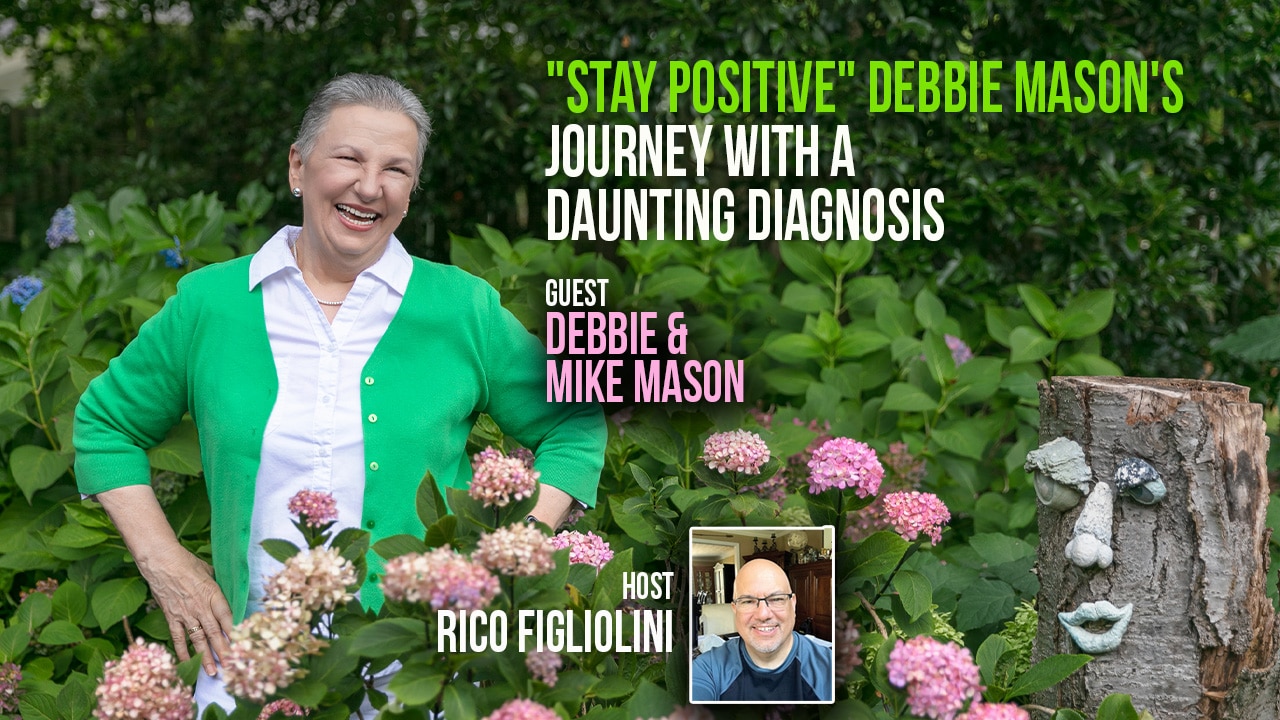
Cancer is never a diagnosis you want to hear. Debbie Mason, active resident of Peachtree Corners and wife of Mayor Mike Mason has faced ups and downs in her battle with this terrifying diagnosis. In this follow-up episode to the article in Peachtree Corners Magazine, Debbie and Mike share the story of their incredible journey.
Time stamp:
[00:00:30] – Opening
[00:02:05] – Routine Testing
[00:05:21] – The Diagnosis
[00:07:51] – Treatment and Complications
[00:16:01] – Love, Support and Prayers
[00:18:07] – Changing Priorities
[00:20:57] – Mike’s Feelings
[00:24:33] – Dealing with COVID
[00:25:53] – Next Steps
[00:30:10] – Closing
“I’ve clearly felt the love… I’ve been told that I have a whole city of people praying for me. And I felt that prayer, I actually can feel it. So it humbles you. Because usually I’m on the other end of the giving, in all my years of doing all that I do. I’m usually the one doing for people.”
Debbie mason
Podcast Transcript
Rico: [00:00:30] Hi everyone. This is Rico Figliolini host of Peachtree Corners Life, the podcast that talks about everything that’s happening in the city of Peachtree Corners. And shares the stories that are out there of people that are working in this community, playing in this community, living here. Sometimes we also do podcasts as follow up to articles in our magazine, Peachtree Corners magazine Tonight is one such podcast. We have a story in this latest issue about a young woman. I’ll call her a young woman because young at heart, right? She’s with us, her and her husband. They’re going to share a story and a journey that I think is important for everyone to know because of how it came about and because of what she’s going through. It’s interesting in a time of social distancing though, in a way of life that we’ve all become accustomed to, right? Because of the pandemic, because we’re afraid of catching Coronavirus 19. But washing our hands we’re doing social distancing, we’re facing these challenges and yet among our lives among other people, there are other challenges that within the midst of that, other challenges are coming up that they have to face. Complicated in this world, but it is such that the world doesn’t stop, it just keeps going and things will happen as they do. But good story here and a good message that you should all take from this. So let me introduce Debbie Mason and Mike Mason. They are with me tonight to talk essentially about the journey that started in November, 2020 or November, October. So Debbie, why don’t you bring us through a little bit about what is going on, how all this started and tell us about it?
Debbie: [00:02:05] Well, It was very, a very innocent happening. Mike and I were helping a local political candidate run for reelection. And we were working in her campaign and I simply called and asked a neighbor if we could put a sign in his yard. And he said, oh, sure. Put a sign in our yard, we love that person. But don’t hang up, Debbie. I want to talk to you about something else. And I said, what is it? He went on to say did you know that my mother recently passed from ovarian cancer? I said, oh, I’m sorry. No, I didn’t know that. And he said on her death bed, I made a promise to her and she made me promise every woman I talk to, I would tell her to get a CA 125 test. Now that’s just a blood test. I said, I’ve never heard of that test. And it was Richard Munos a nearby neighbor. And I said tell me about it. He said it’s just a blood test. I mean, you can get it any time and costs maybe $25, $50. But you can add it in with your blood work when you’re having a physical and I was due for one. And so I went in several months later and I asked the doctor to add a CA 125 test to that. And when I got the results back, it was slightly elevated. It concerned me. I’m a little scared, but the doctor said, don’t worry about it. That test can be high for a number of reasons. But if you’re really worried, we can get a scan. And since you’re, an older woman that would probably be wise. So we took the next step and I had a scan of my abdomen. And they found what they called a thickening in my uterine wall. And he said I’m not really worried about that. It’s out of my hands now. You need to go to your gynecologist and have him check it out. So I went to my gynecologist, had him check it out. And he said, Debbie, I don’t think that is a thickening I believe it’s a polyp. I said, do I have anything to worry about? And he said no. We see these all the time, it’s just a polyp, we’ll do a DNC where they scrape the inside of the uterus and get rid of it. But we’ll go ahead and take your fallopian tubes and ovaries because you’re past childbearing age and then you won’t have to worry with the CA 125 test anymore. I said that sounds good. So we scheduled it. It was scheduled very soon, right before Thanksgiving of 2020. Several days later I recovered nicely We were about to go out to dinner actually to celebrate my good health, when the phone rang and it was Dr. Morgelle. And he said, Debbie, I’m sorry to have to tell you. I have devastating news. The polyp was cancer.
Rico: [00:05:17] What did you think about at that moment?
Debbie: [00:05:21] I couldn’t breathe. It’s just, when I think about it. Nobody wants to hear that. And then he went on, it got worse. He said it’s carcinosarcoma. Well, I’d never heard of that. And he said, it’s the worst diagnosis any woman wants to hear. He told me the kind of cancer it was. And we talked shortly and then we hung up. And so needless to say, we called my sons and canceled dinner. They came over, we cried. But you know, like we always do Rico, in anything that we tackle, what’s the next step? Well we were going in, it was the week before Thanksgiving. We said, okay, now who do we know? What can we do? Our minds started turning. And Mike might want to come in here cause right.
Mike: [00:06:20] You always go with the facts. And so I immediately, after supporting Debbie and everything, got through that, I said, look. Before we get too far into this, let’s get the facts. because she was told you need to get a surgeon immediately. A gynecologist who’s also a surgeon and I recommend this person. It’ll be hard to get that guy because he’s on Thanksgiving holidays. And so we started calling people to how quickly can we get in to see him? How quickly can Debbie have the surgery? But in the meantime, you go to Google and you figure out everything you need to know about carcinosarcoma. And it’s terrible. It’s exactly what the doctor said.
Debbie: [00:07:02] Everything that you hear is gloom and doom, because this cancer is always found late stage.
Mike: [00:07:11] Late third or fourth. You don’t see symptoms until late.
Debbie: [00:07:15] Yeah.
Rico: [00:07:16] When we had that conversation some weeks ago, you and I. And I thought this would be great to share in the magazine and on the podcast I went and I looked. The same thing you did probably, Web MD and you look at all the stuff that’s out there. What type of cancer is it? And you’re right, it’s scary. And even if you’re not a religious person, I think you find that the world sometimes brings things to you, presents themselves to you in a way. Opportunities present themselves to you. You walked up to that guy’s door and you found salvation to a degree, because you found it early.
Debbie: [00:07:50] Yeah.
Rico: [00:07:51] So once you went through that, once you got tests, the shock I’m sure, and the emotion and the supporting. I think husbands to some degree, want to be problem solvers. We want to be able to be that supporter, but we want to solve the problem. So how did it go? Where did you take it from there then? Because it was before Thanksgiving. So how did that go?
Debbie: [00:08:11] First of all, we called our family doctor. Who had found it through a scan, the polyp. Because the doctor we had contacted, the surgeon who we weren’t able to get in to see until after Thanksgiving said to have a chest x-ray or a scan of the chest. I said to Dr. Singal and we had occasion to talk to him can you order that? And he said, yes we’ll get that right away. Went over and got that done. But I think we mentioned to Dr. Singal in him getting the results saying that, because this cancer would typically move to, the lungs is a popular place it likes to go. That scan did not show any evidence of metastasis as we read the results. And we asked Dr. Singal. So well, we just had the other scan, he said that should help too. And between those two things, for the first time, I felt a little bit better. Mike, is on the board of health with being the mayor of the largest city. So he’s friends with Audrey Arona who is the chairman of the board of health and she just so happens to be a gynecologist before she was on the board of health. So again, we’re grasping for information and we can’t find professionals fast enough. So we called her and ran that past her. And we told her the story. She said, what? You mean, how? You found this?
Mike: [00:09:50] She said, you weren’t having any symptoms?
Debbie: [00:09:52] This cancer is always found because a woman is bleeding and that’s usually stage three or stage four. Debbie, this neighbor of yours probably saved your life. Well we, that it is yet to be seen but she’s right. Because I was thinking let’s get my affairs in order Mike. I mean, I’m going to die. Well, we all know we’re going to die, but I wanted to think I would have it a little more time on this earth. But I thought I would have to get my affairs in order. She said, Debbie, this is survivable. And that was the second ray of hope that I got. When we finally got in to see the surgeon, he was more gloom and doom. Because he says that cancer is just a monster. It’s known for coming back. Let’s just get it out as quickly as we can. So we got it out a few days before Christmas, it took me almost a month to get it scheduled. People love to do surgeries at the end of the year for insurance purposes, I understand. So we said, whatever hospital, I don’t care where we have to go, first available. And they took out my entire uterus because he had to determine if it had passed through the wall. And that’s how we were able to stage the cancer. And then he called me, but of course he told me the good news in the hospital. I had a little setback, but was home recovering well. And I started bleeding and it just wouldn’t stop. So they rushed me to the hospital. And I have a heart issue as well, and I was taking a blood thinner. And that was complicating the situation. So they got the bleeding to stop and everything was fine. But I remember him coming into my room. He said, Debbie, stage one. You’re lucky. Stage one. And he held up his finger like that. And I said, oh my God, I cried and cried. But he said I’m gonna still present your case to the tumor board at the hospital. And they’ll tell us what they want you to do. So he did, he presented it and they suggested since the cancer had progressed through 60% of the wall of the uterus. They don’t like to see more than 50%. 50% they’ll only recommend radiation. Since it was a little more, he said for the best outcome for this woman, let’s do chemo and radiation. And I thought if that’s what we got to do, let’s do it. So I scheduled a chemo for the next week, went in, did a full round of chemo. And went a week later for my blood work. And they looked at me, I was awfully tired but I assumed that was from the chemo. They looked at me and said, my goodness when did this start? And I said, when did what start? What do you mean? They said, well you’re terribly jaundiced Debbie. And so the doctor came in and said, oh my goodness. Let’s put her in a wheelchair and take her downstairs to the hospital. We were over at Duluth North Side. And I had gone into a rare reaction to the chemo. 1% of the population experiences this, and I was in liver shutdown. And so the doctor pulled the chair into my room and I said, this doesn’t look good if you’re going to come in and sit down. Because you know, doctors just don’t usually do that. And he said, yes, it is. You can live with cancer, but you can’t live without a liver. And they even talked to liver specialists at Emory about the possibility of a transplant. But then the guy we contacted Dr. Lord who is wonderful, came into my room and said, who said anything to you about liver failure? You’re not in liver failure. The liver is a wonderful organ that bounces back. What I suspect will happen, I don’t know for sure, but what I suspect will happen, your liver values will rise. It’ll take a day or two for us to see. So the next day they came up slightly and the day after that, they came up even more. And so they let me go home because there’s nothing that you can do to improve your liver. It just does, it just reacts on its own. It took about a month for my liver values to get back to normal. So I survived that, I dodged that bullet
Rico: [00:14:55] They ended up stopping the chemo?
Debbie: [00:14:58] Yes. They said, no more chemo for you. It’s like Jerry Seinfeld with the soup Nazi. No more chemo for you. So the only thing I can battle this cancer with is radiation. Once I recovered enough, I started on my journey with radiation. And I had three rounds of high dose radiation. Which I can’t say I really suffered any side effects from that. A little bit of tiredness. But I was lucky. I thought I was due, I was overdue for some luck, so.
Rico: [00:15:36] That’s right. Most people have, depending on where the radiation is done, most people end up with side effects and stuff. But you obviously were able to bounce back and going through that radiation, the three rounds of radiation. When was the last round that you had?
Debbie: [00:15:52] It was probably the end of February.
Mike: [00:15:55] I was going to say, sometime in March, but same time frame.
Debbie: [00:15:59] It may have been the first week of march.
Rico: [00:16:01] Right. So Debbie, you’ve gone through a lot. Back and forth, complications, liver. I probably not knowing how it would exactly feel, I certainly know how bad luck feels sometimes I feel you know, darn, I don’t win the lottery and I’m doing this what’s going on? You know, and you’re fortunate you have a lot of people you know. So for those people that obviously, I think people know Mike Mason’s the mayor. I think most people know you’re the first lady that you’ve been you’re a founder and on the board of the Peachtree Corners Festival. You were part of the United Peachtree Corners Civic Association, you’re still on the board now. I’ve known you guys going back. I don’t know, 20 odd years, maybe? I don’t know, It’s been a long time.
Debbie: [00:16:45] It’s been 20, 25 years.
Mike: [00:16:46] When you first moved here.
Rico: [00:16:48] That’s right I moved here in 95, met Tom Rice actually, knocking on my door, the first campaign. And I was like, do I know you? And he was like, I’m Tom Rice, I’m running for office. A former assemblyman for those that don’t know. But yeah, it’s been a long time now. And I don’t know your personal lives per se. But you know, I’ve seen your kids grow up a little bit and stuff. But you’ve had a whole city, lots of friends I think. You must have a tremendous amount of support from people that you knew.
Debbie: [00:17:15] I’ve clearly felt the love. My youngest son who doesn’t live here, came all the way down from Connecticut and he came in right before Christmas and he stayed through surgery. And he didn’t stay through the radiation, but he stayed there through most of the tough parts. And just countless people with food, with sending gift cards. And the stack of cards I got and all the people saying I’m praying for you. And I’ve been told that I have a whole city of people praying for me. And I felt that prayer, I actually can feel it. So it humbles you because usually I’m on the other end of the giving in all my years of doing all that I do. I’m usually the one doing for people.
Rico: [00:18:07] You’ve been a fundraiser, you’ve been out there for a lot of different charities working on foundations. You’ve worked on the Norcross High School Foundation of Excellence. Actually, you guys were I think entered into the hall of fame. You’ve been out there doing things. And so when something like this happens and you’re on the other end of that receiving. And obviously the big C word that people worry about, thank God, you seem to be heading in the right direction. Do priorities change? What has been probably the biggest change in your life?
Debbie: [00:18:37] Well, you look at life differently, I’ll say that. You don’t think long-term, you think short term. Mike and I, always say we give ourselves away. It’s something that we need to do for the community. But we might forego something that we wanted to do. I don’t do that anymore. And I, told my partner in crime for the festival just the other day. I still love the festival it’s just my baby. I birthed it. But I just don’t feel the burn to raise the money like I used to, I used to treat it like it was buried treasure. There’s a dollar out there, I gotta find it. And I just don’t feel that anymore. And I’ve dropped off of, I used to be on Gwinnett, Clean and Beautiful board. And I’m still active in my neighborhood. But I’ve just slowed down. I take more time for me. I still make it a point that I attend every city council meeting and work session. I think probably since the city’s been in existence, I missed one meeting when I had heart surgery and I missed one meeting…
Mike: [00:19:52] Pesky cancer, right?
Debbie: [00:19:54] Yes.
Rico: [00:19:56] Right. I know you have a beautiful garden and we had a photographer go out and take pictures and I can tell you it was hard to pick out the right picture for that spread in the magazine. So there was a lot of great pictures in there. Do you find yourself spending more time there? What do you find yourself doing?
Debbie: [00:20:13] Our garden has never looked more beautiful because we got started early this year.
Mike: [00:20:18] She did a great job.
Debbie: [00:20:19] But because of COVID-19. COVID has been good to us because we’ve sidestepped the disease and it’s given us more time at home to plant. Because when I’m in that backyard, I’m in the zone. My hands are in the dirt and everything. Mike says, I paint with flowers.
Mike: [00:20:38] She does.
Debbie: [00:20:40] Yes, you’re right. I had changed my priorities there. We just love our yard. We enjoyed a staycation before it was popular to staycation. Because we’re not big travelers. We’re homebodies and we just love our home and we love our backyard.
Rico: [00:20:57] Mike, as a husband, as mayor of the city as a friend. Husbands are sometimes deep friends with their wives, right? You hope that’s the case. How did that compare? How did you feel? Tell me a little bit about how that felt man to man here.
Mike: [00:21:11] You probably know this about me and a lot of people do. I’m very objectives oriented and I just make a list and work the list. I was an accountant, a chief financial officer for years and years. I try to get the irrefutable facts. And so that’s what I started doing. Jokingly I like to say, I wish the had the luxury of having feelings. But it’s helpful. If you try to avoid having feelings, you can’t. It’s your wife. Been married 48 years. It’s your best friend. But you also play the role. So one role is I’m the guy who’s got to get all the facts and make sure that when we talked to doctors, I’m there. And COVID got in the way and Debbie would zoom me in or FaceTime me in.
Debbie: [00:21:58] Yeah, he was not allowed in the room. When I saw these doctors and like I said, it’s like drinking out of a fire hose and the information is coming. And when I would leave the room. I couldn’t remember anything they told me. It was just overwhelming.
Mike: [00:22:14] And I would be able to communicate. Because I had already read everything that’s possible to read. And I’d already figured out stage one is this, and stage two, is that. But what about this? And so I was ready. And so we went through that and I would help her. I would provide structure to her. Okay, no. Here’s the parts. Here’s what we’re going to do. I’m talking to the doctor and this is it. I would call doctors and schedule things for her so that she didn’t have to deal with a lot of that stuff because you don’t have a lot of bandwidth left. You know, that was the thing. It was emotionally draining to deal with it. So she was dealing with something that would drain away. And if you’re dealing with the bureaucracy of a doctor’s office or a hospital, that can kind of drain you too. So I would handle all that. And then when we would get setback news, or it would be like, oh no, what does that mean? My job is always to be the team cheerleader. No, that is not what it’s going to happen. You know, you have to focus on this, you have to wait and get this fact. All we’ve heard is this, that does not mean that. And you have to be very clear on expectations and relentlessly shamelessly cheerlead.
Rico: [00:23:32] Even when I’m sure that Debbie would be like, I don’t need the cheerleading. This is the way I’m feeling right now. I’m just going to have to go with it. Because I can imagine. I have a wife that, I’m at the doctor’s with her sometimes like that, because it’s not only listening to the stuff. She’s very good about remembering everything. She remembers everything. But you want to be there to handle perspective also, right? It doesn’t mean this because you’re only listening from a certain point of view because that’s where you are. You’re afraid of what’s going on and it’s a tunnel vision almost. And you need that extra person there with you that you trust to be able to bring you back a little bit.
Mike: [00:24:08] Yeah. To literally ask questions about now, wait a minute. Let’s be clear. What about this? What about that? Because when you’re in the moment with a doctor they give you time. But remember, they’re trying to get to the next patient as well. So you want to get all the facts clarified before.
Debbie: [00:24:25] And when they’re a cancer doctor, guess what? The next patient has cancer too. They want to have their time and they should have their time.
Rico: [00:24:33] And COVID obviously ranked in there because of the way the hospitals were working then. At least the beginning of the year. Did that even bother you? Was that a concern?
Debbie: [00:24:43] I was scared to death. Let’s see, COVID started around February of 2020, I mean 19. And then I got the diagnosis of my cancer in October. And you had to mask up. No doctor’s office would let anybody else in the room. And the last place you ever wanted to be was in a hospital. And I was in the hospital for two surgeries. And then for two times for my liver failure and my bleeding episode. How we managed to, and still, I thank God that we had sidestepped getting COVID-19 so far. And I’m worried about this Delta variant. Oh my goodness.
Rico: [00:25:29] Right. So you guys masking up still now when you go out? If it’s too crowded?
Mike: [00:25:33] We started again.
Debbie: [00:25:34] It depends. When I go to the grocery store, if it seems especially crowded, we mask up. And in restaurants or our favorite restaurant that we go to. But for most places, this morning I was at the nail salon, we were the only two people in there, we didn’t. We just use our judgment.
Rico: [00:25:53] Yeah, no, I get it. And you’re right. I just thought of masking up a couple of days ago because of the variant and stuff. And I also found out one of my tennis partner, but he was on the altar team I’m on, has COVID. Just got it. Even though he’s fully vaccinated. So there you go. And there are more people like that it seems. I’ve been speaking to a few doctors and they’re seeing more of that. That even though you’re fully vaccinated, there’s still people catching it. So you want to be careful out there and you’ve adjusted your lifestyle a bit. You’ve set your priorities. I’m sure moving forward as things progress. God willing, everything stays better. I know you’re still concerned. You have another test coming up in a week or so.
Debbie: [00:26:31] Yeah. I mean when we got the word that the scan, the first scan that I received, there was no sign of metastasis. So it was clear. Naturally I cried in the office And they told us how it works. You won’t have another scan unless you have symptoms. So anyway, when we got the number of the CA 125 test and that number had elevated, I said, oh no, it’s probably just like Dr. Solmeri said it’s back. And then Mike in his cheerleading fashion said, no Debbie. Remember, let’s look at the facts. He reels me back in when I need it and thank God I’ve got him. I don’t know how I got so lucky. We’re gonna go next Wednesday to have that CA 125 test redone and see if it’s jumped again. So we’ll know then if it has jumped again, there will probably be something going on. But if it has stabilized because that number can go up or down, it’s not a finite number. Like most blood tests. It can bounce around. It measures inflammation. And so inflammation can be from whatever.
Rico: [00:27:48] Yeah. A variety of reasons. I’m sure.
Debbie: [00:27:50] Yeah.
Rico: [00:27:50] I think we’re at a good point here. I appreciate you sharing your time with us, with everyone, to talk about this. Obviously CA 125 is the test that every woman should take. And it’s like you said, it’s inexpensive. It can be part of your physical, your lab work.
Mike: [00:28:07] The CA obviously stands for cancer, but it measures inflammation as Debbie said. So there are a lot of false positives. Young women, particularly. If a woman starts her period, it’s going to skyrocket. But it can register all kinds of things. That’s why doctors say they don’t do it routinely with women over a certain age. But we have gone through this with other doctors.
Debbie: [00:28:28] I can remember the oncologist, the surgeon telling me, he said, I don’t want you going out and telling every woman you meet. Because he knew the story. To get a CA 125 test. It’s just gonna cost them money and it’s going to scare them to death. I said well, yeah, I was scared to death too. But what if they’re like me Dr. Solneri? And he said yes, in your case, it may have saved your life. And that’s the end of the story. Give me false positives. I’ll take them all day long. If I peel that onion and it comes back, no cancer.
Rico: [00:29:08] I think at one point mammography was like that. They were trying to say, let’s cut it out because you don’t need it at a certain point. Every life is important. Yes. You want to be able to have that option.
Mike: [00:29:19] Exactly.
Rico: [00:29:20] If you want that option, you should be able to have it.
Debbie: [00:29:22] I would like to think that every woman, by the time she maybe is age 40 would be a good time to start. I’m quite sure there’s women somewhere that have gotten this cancer younger than that. But I think to be reasonable at 40 would be a good age. But most certainly, I was a 70 year old woman. I still had my uterus, a lot of women don’t. I went for genetic testing to see if I had a marker somewhere that a BRACA gene was why I got my cancer and they were all negative. And the genetic lady told me, the reason you got cancer debbie was just because you had a uterus.
Mike: [00:30:08] She didn’t inherit it from anybody.
Rico: [00:30:10] Wow. Okay. I appreciate your time with us. I know we had talked before about how Debbie is from Indiana. Mike’s from Georgia, native. Just to give some people some background. Although when did you leave Indiana Debbie? Did you come straight to Georgia or did you come through by way of somewhere else?
Mike: [00:30:27] How long do you have?
Debbie: [00:30:30] That story is so long, Rico, I don’t know if you really want to know the answer.
Rico: [00:30:37] That’s for another podcast then.
Debbie: [00:30:39] Yes, another podcast
Rico: [00:30:42] It’s good to have you on and I appreciate you sharing your story. It’s a touching story. And Mike and Debbie.
Debbie: [00:30:47] I thank you for letting us have the time with you to share the story. Because if this saves one person’s life, it will be worth it.
Rico: [00:30:59] For sure.
Mike: [00:31:00] And I’ll take this opportunity. Constantly, relentlessly, get vaccinated. Same thing. Get a CA 125. I do it all the time with people. And I mean it. Some people get mad at me. I’m sorry. Not really. But be vaccinated. And women over a certain age, really talk to your doctor about it. But CA 125. Might save your life.
Rico: [00:31:23] Thank you guys. I appreciate that. Thank you. And thanks everyone for listening. Pick up the magazine, you’ll find it at most businesses and catch the show later.
Related
Community
Peachtree Corners Shines Bright with Light Up the Corners Glow Race this August
Published
2 days agoon
July 24, 2024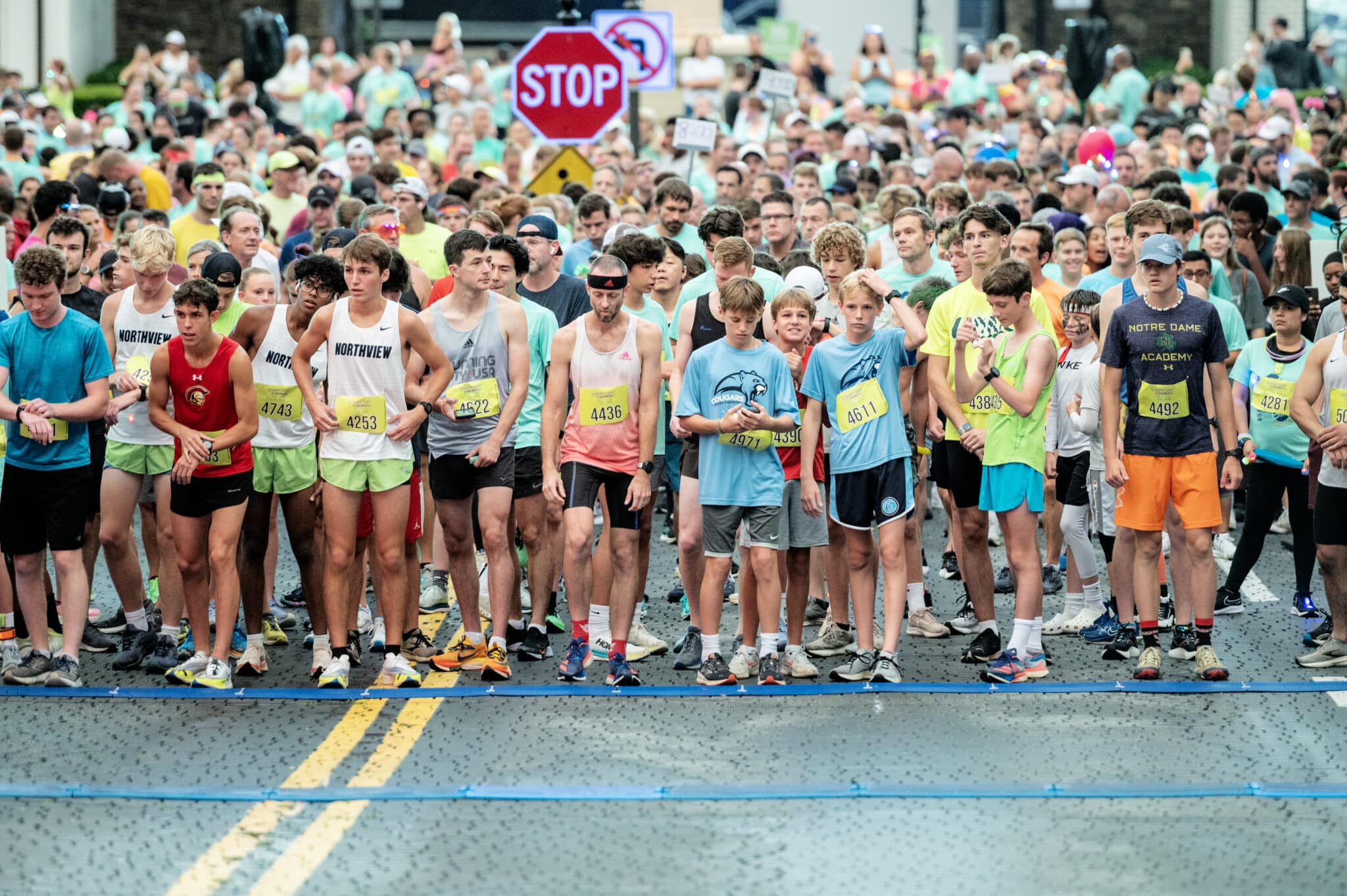
Peachtree Corners’ annual Light Up the Corners Twilight Trot and Glow Race is returning to the Forum on Aug. 10 for its 13th year of building community, getting some exercise and benefitting a very worthy cause.
Amy Massey, the founder of Light Up the Corners, said her inspiration for the nonprofit came from serving on the board of the Fowler YMCA for 10 years.
“I was always looking for ways to raise money for [Fowler YMCA’s] annual campaign. And I rotated off about 12 years ago or 13 years ago. At that time, I was looking for ways to raise money, and the City of Peachtree Corners was talking about becoming a city through UPCCA,” she explained.
“I’m a runner and I was a member of the Y, and we had a running group out of the Y. So, I just recruited some of my running friends and decided we would start a race in Peachtree Corners,” Massey added.
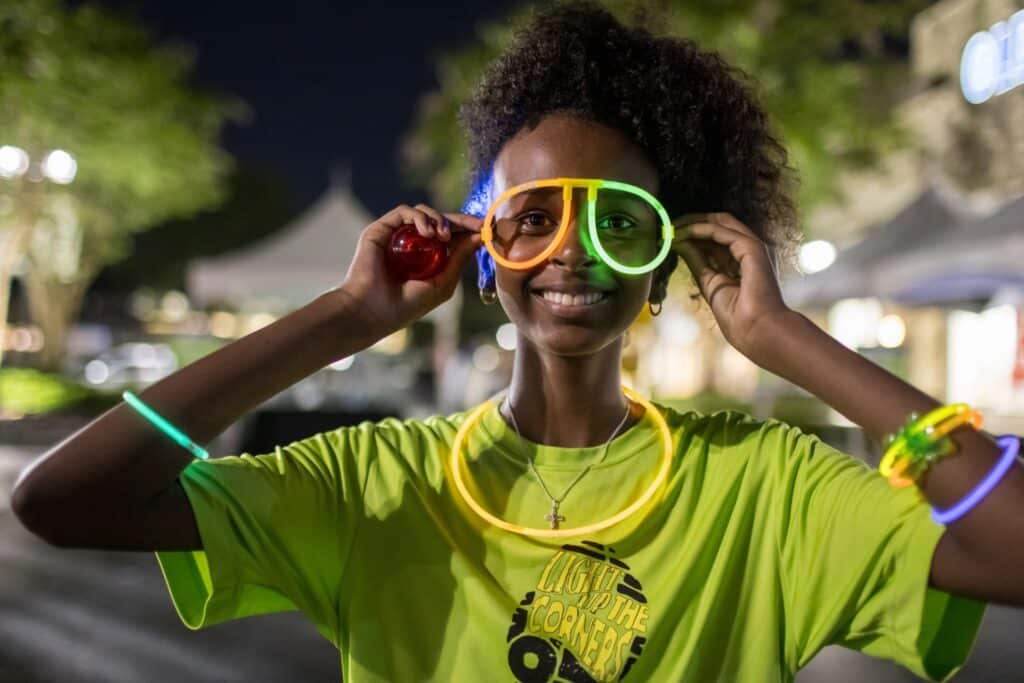
Bigger and better
In its first year, the race had roughly 400 participants. Not a bad turnout for the inaugural event, but Massey and her team of volunteers quickly started brainstorming on how to attract more runners.
“We talked about doing a glow run, and that’s when it changed. So, in year two, we did our first glow run. This year will be our 11th annual glow run and our 12th run altogether. And then we took one year off during COVID,” said Massey.
It’s my baby,” she added. “But I could not do it without the help of my friends and running partners who have been with me all the way. We have some of the same volunteers on our committee now as we did when we started out.”
This year, Light Up the Corners expects over 1,500 attendees.
“There are a lot of glow runs out there that are more of adult-focused parties. But ours truly is a coming together of people of all ages and all walks of life,” said Massey.
“That’s what sets us apart because our largest demographic in terms of age groups is the 10 to 19 range. A lot of school-age kids come out, a lot of young kids with their parents. We have 300 little kids who sign up for the Twilight Trot, which is just half a mile long. And so that attracts the little ones. It’s heartwarming to see people of all ages come together and it’s a healthy fitness-focused, family-friendly community activity,” she added.
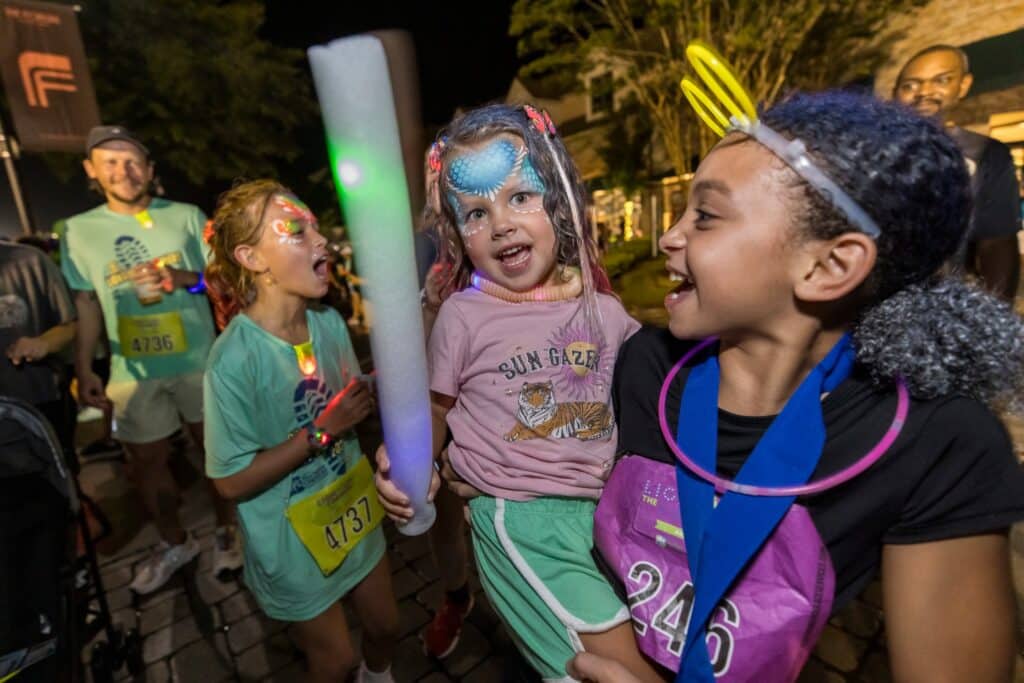
A big, family-friendly party
In addition to two races: a Twilight Trot 1K for the kids, and a 4-mile Glow Race for the adults, the Forum will be showcasing its new plazas. The pre-party and Glow after party will be held on the Grand Plaza which is set to open on that very weekend.
“Each participant gets a lot of glow swag, we want to make sure everybody lights up the course as they’re running around Peachtree Corners, and also to keep them safe so everyone gets that and a glow baton,” explained Massey.
“We welcome runners, walkers and people of all ages. It is more about the fun and the excitement of coming together as a community than it is about racing or setting any speed records,” she added.
The Forum has also hired Yvonne Monet, a radio personality and DJ with Q99.7, to entertain eventgoers and keep the energy up with great music. There will also be face painting and neon fingernail painting, along with roaming entertainers on roller skates and more, courtesy of the Forum.
On top of that, race sponsors will be providing food and samples throughout the night, like pizza, watermelon and a wide variety of other tastings from The Forum restaurants.
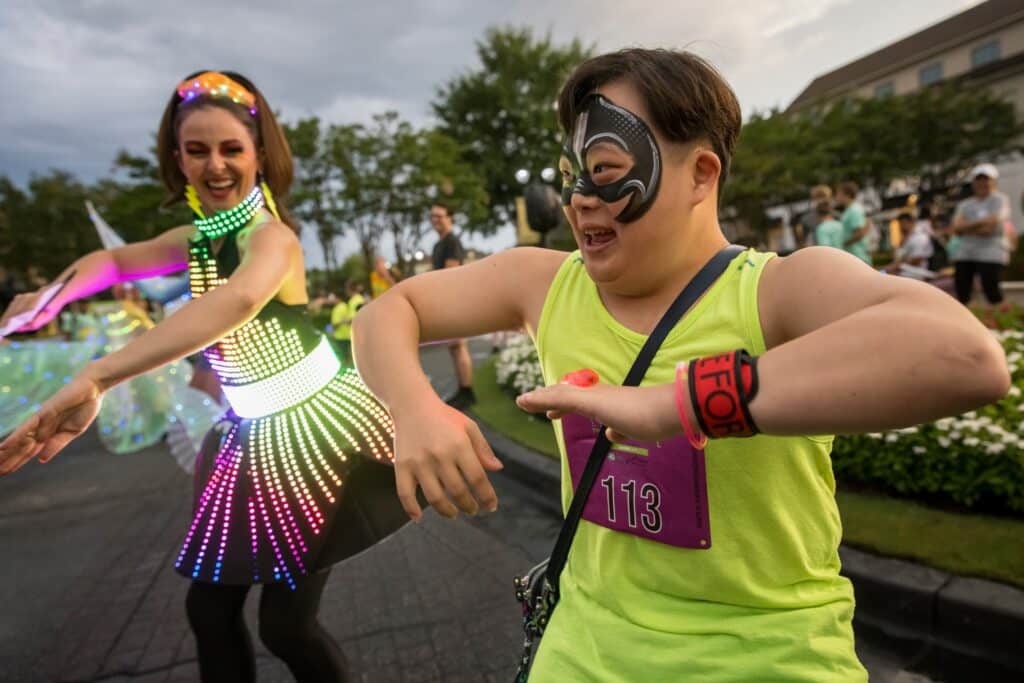
Coming together for a worthwhile cause
Light Up the Corners is an IRS-recognized 501(c)(3) nonprofit run entirely by volunteers. There are no paid positions at all, and 100% of proceeds go to the Why it Matters Campaign at the Fowler Y.
“All money stays local, and it is a passion of our committee to help the Y through this campaign. We believe that all people, regardless of their ability to pay, deserve to benefit from the programs and services at the YMCA. And they have a sliding scale that they use to provide financial assistance to people,” said Massey.
“There’s a wide range of programs and services, and I’ve seen firsthand the work that they do there and the life-changing effects that it has had on so many people in our community,” she added.
Sponsors are also fundamental to the event’s success.
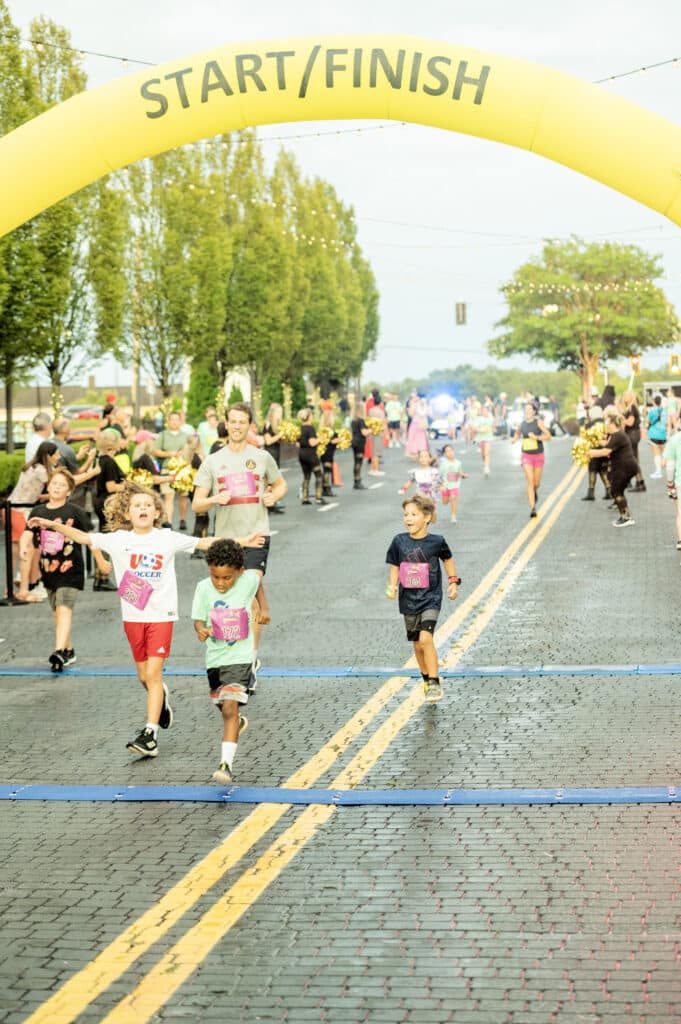
Without the support of sponsorships and generous donations, there would likely not even be a race because the associated costs would cancel out the registration fees, explained Massey. Sponsors allow Light Up the Corners to offset all costs of the event so that 100% of registration fees by individuals go directly to the YMCA.
“I will say that North American Properties, when acquired The Forum, have gotten behind this event 110%. They have been amazing in their support and generosity in providing the tents, the entertainment and the backbreaking work of setting up something like this,” said Massey. “We couldn’t do it without them or the City of Peachtree Corners which has been a title sponsor since day one.”
Fun fact: For the first time, Light Up the Corners held an open competition to see who in the community could design the best t-shirt logo for this year’s race. Daniel Lee was chosen out of over 30 submissions and was awarded $1,000 for his efforts.
To participate in the annual Light Up the Corners Glow Run, register at lightupthecorners.com or simply line up on the racecourse and cheer the runners on as a spectator. To become one of over 200 volunteers, email Amy Massey at amassey@runthecorners.com.
Related
Community
Twin Authors Chronicle Antics of ‘Four-Legged Brother’
Published
2 months agoon
June 6, 2024
Berkeley Lake second graders make fans across the globe with sweet children’s story.
When rescue dog Apollo found his forever home with Megan and Mackenzie Grant, the Berkeley Lake twins knew they had added a special member to the family. He’s so beloved that he’s considered their “four-legged brother.”
Apollo is a Boston terrier. The breed is known for its friendliness and love of people and children. According to the Purina Company, makers of all kinds of pet food, Boston terriers make affectionate pets and are outgoing and social.
While they are called ‘terriers,’ they are not in the terrier group, nor do they behave like them. They are far happier at home with their owner than getting into the usual mischief.
But Megan and Mackenzie see him as a silly addition to the family.
“He’s super cool because he’s always up for fun and loves us a whole bunch. And guess what? We love him back even more! He’s like the best friend ever, wagging his tail and making everything awesome!” they said in a press release.
Apollo’s birthday inspiration
As his first birthday approached, the girls, six years old at the time, wanted his day to be special.
“I said, ‘Well if you want to come up with something to do, let’s write it out,’” said mom Tameka Womack. “So they started writing out all these different adventures, and it was so cute.”
Megan recalled that their teacher had told them about someone who had published a book, and she asked if they could, too.
“When I read through it, they had all the different things, like playing dress up because we had bought some clothes for him. And we take them out for long walks around the lake and stuff,” Womack added.
Although their favorite subjects in school are PE and art, they did such a good job with the tale that Tameka worked with them to get it published. On Feb. 1, the young authors released the children’s book, “How We Love Our Four-Legged Brother.”
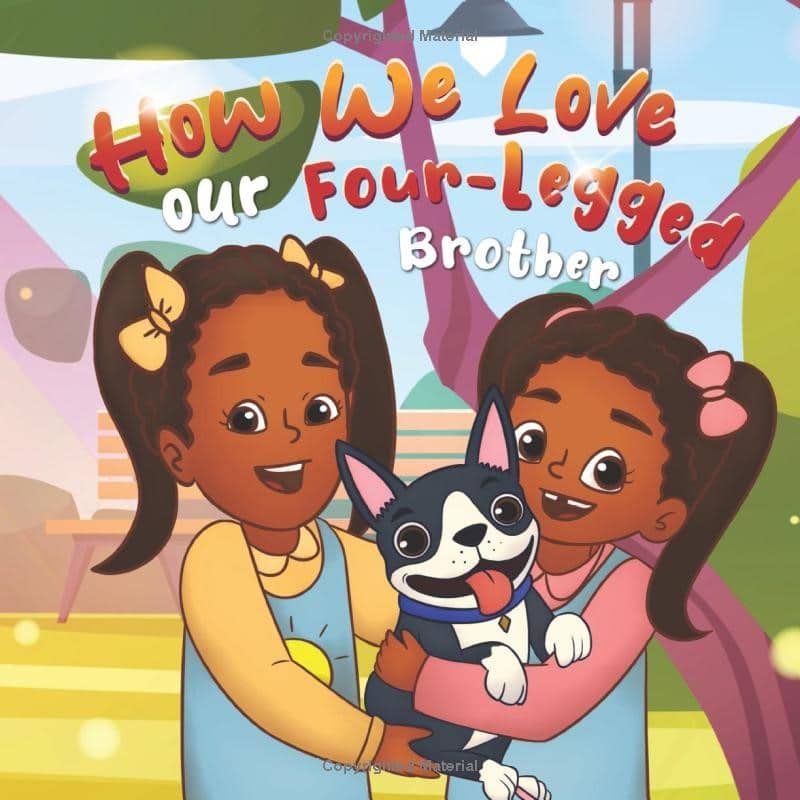
Publishing success
The 30-page book took off almost immediately. Available for print and digital through Amazon and print editions through Barnes & Noble, the book has reached customers in the U.K., Germany, France, Japan, Canada, Australia, Sweden, the Netherlands, Italy, Poland and throughout the U.S.
The girls and their mom were so pleased and surprised to find out the book was No. 1 in its category on Amazon.
“They were just so excited that people actually bought the book,” said Womack. “They were just like, ‘Wow, who is buying this?’”
Feedback from fellow twins, animal lovers and teachers showed that the story resonated on many levels.
“As an educator, I am always on the lookout for diverse and inclusive literature for my students. ‘How We Love Our Four-Legged Brother’ not only captivated the imaginations of the children in my class but also served as a wonderful conversation starter about friendship, empathy and the beauty of diversity,” wrote Ashleigh Darby.
The royalties from book sales are tucked away, with a percentage going to Apollo’s wardrobe.
“He won’t go out in the rain without his raincoat … or out in the winter without his sweater,” said Womack. “We have a little budget for his clothes because every time the girls see something, they’re like, ‘Oh, I think Apollo will like it.’ I’m like, I think he would too, but let’s let it stay in the store.”
Nurturing creativity
Although both mom and dad are engineers and kind of hoped that the twins would follow in their footsteps, Womack said she’s okay with them being artistic and creative.
“Writing is teaching them some responsibility and teaching them a little bit about money,” she said. “Now they want to write a book every day.”
Between raising three daughters (the twins have an older teenage sister), running a household with her husband and keeping up with her career at Georgia Tech, Womack said she’ll look for time to continue helping the girls with their dreams.
“With summer coming up, I would definitely encourage parents to help their children explore their creativity in any kind of way, from digging holes in the ground to … seeing the world … to creating books instead of being on the internet,” said Womack. I try to limit my kids’ screen time … and build real memories.”
Find “How We Love Our Four-Legged Brother” on Amazon.
Related
Community
Local State Reps Give Roundup of Legislative Session
Published
2 months agoon
May 28, 2024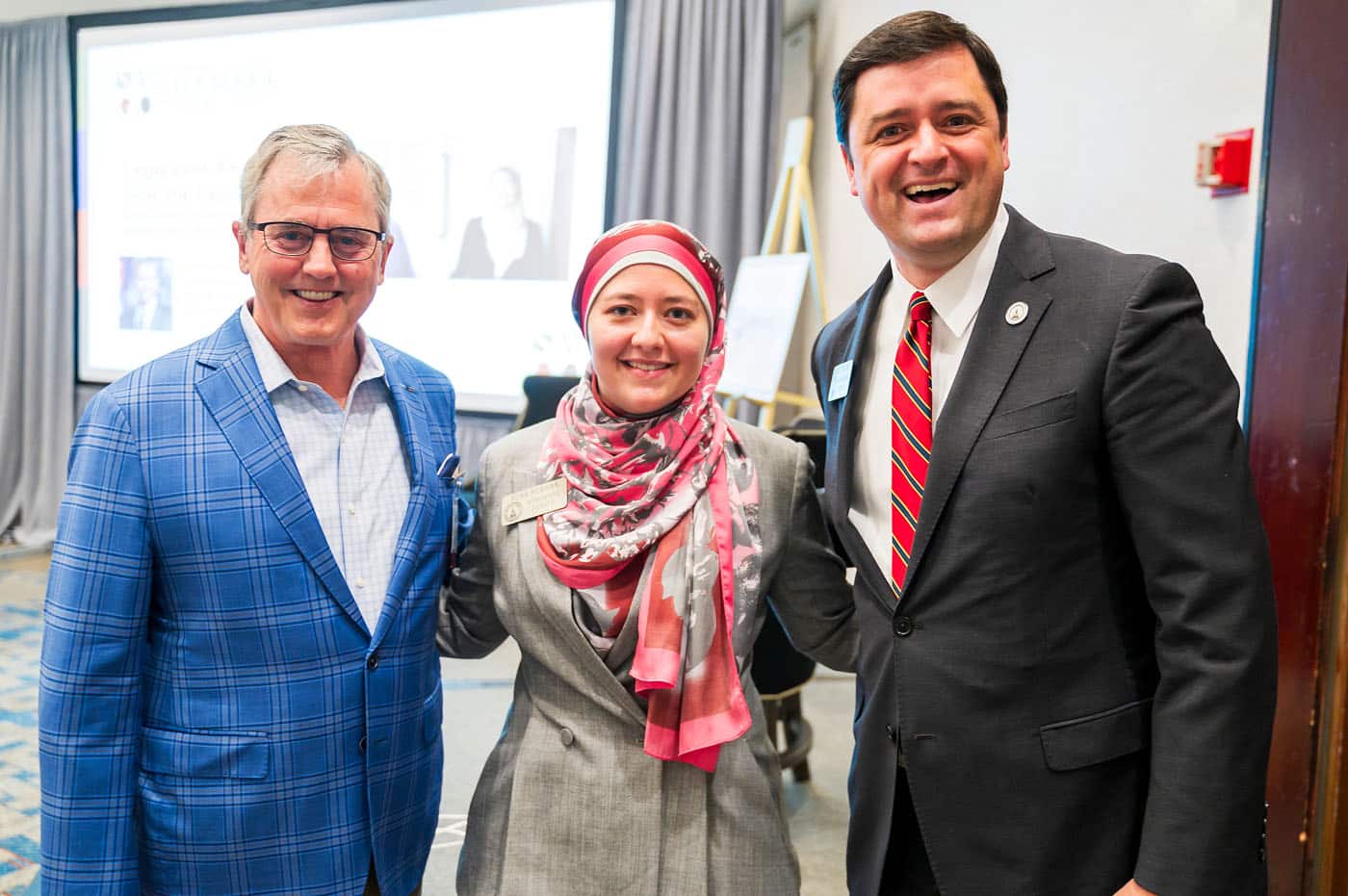
Hilton, Romman trade friendly banter that reflects diverse views in Georgia government
Georgia State House District 97 Representative Ruwa Romman and District 48 Representative Scott Hilton, whose constituents include parts of Southwest Gwinnett County, including Peachtree Corners, sat down for a second time to share information about legislative action at the State Capital.
Their discussion was part of the Southwest Gwinnett Chamber of Commerce First Friday Breakfast series at Atlanta Hilton Northeast.
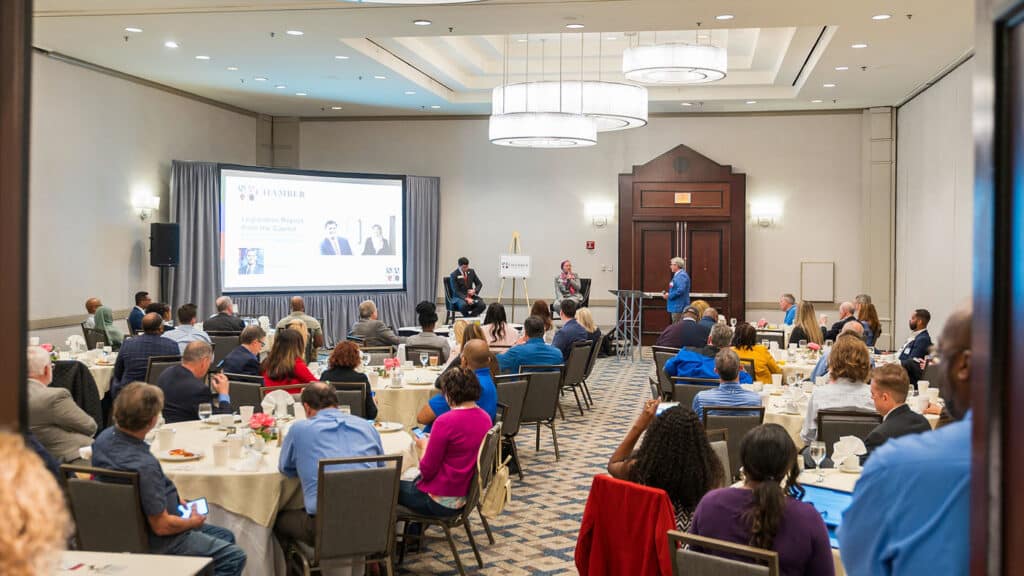
Although they sit on opposite sides of the aisle, Hilton and Romman both seek to sponsor and pass legislation that improves and maintains a high quality of life in the Peach State and provides its residents with what they need.
Elected in 2022, this was Romman’s sophomore year in the State House. She serves on the Georgia House Energy, Utilities and Telecommunications Committee, Georgia House Information and Audits Committee and Georgia House Interstate Cooperation Committee.
Hilton previously served in the State House from 2017 to 2019 but took a “sabbatical,” as he calls it, to serve as executive director for the Georgians First Commission under the Office of Governor Brian Kemp.
He was re-elected to his current position in 2022. He is the vice chair of the Georgia House Creative Arts and Entertainment Committee and the Georgia House Education Committee, as well as a member of the Georgia House Public Health Committee and the Committee on Georgia House Urban Affairs.
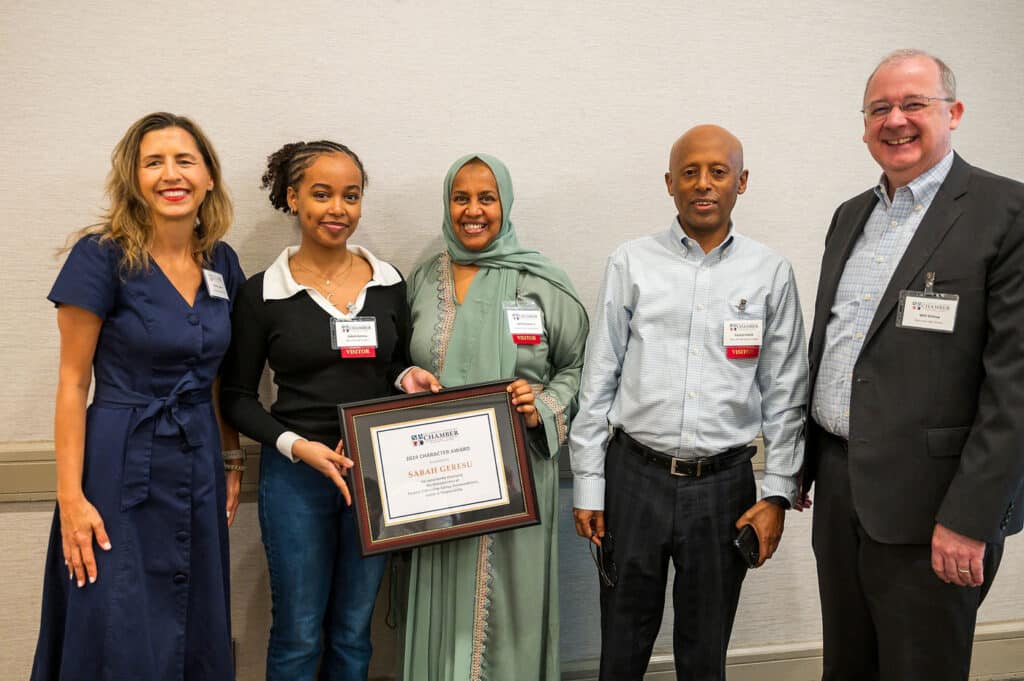
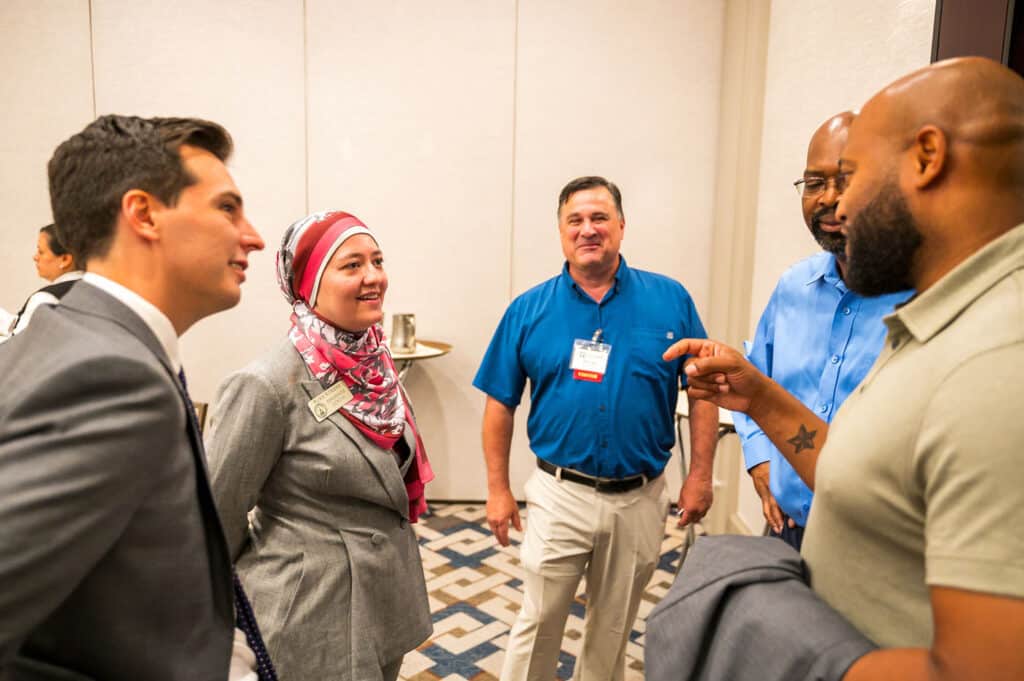
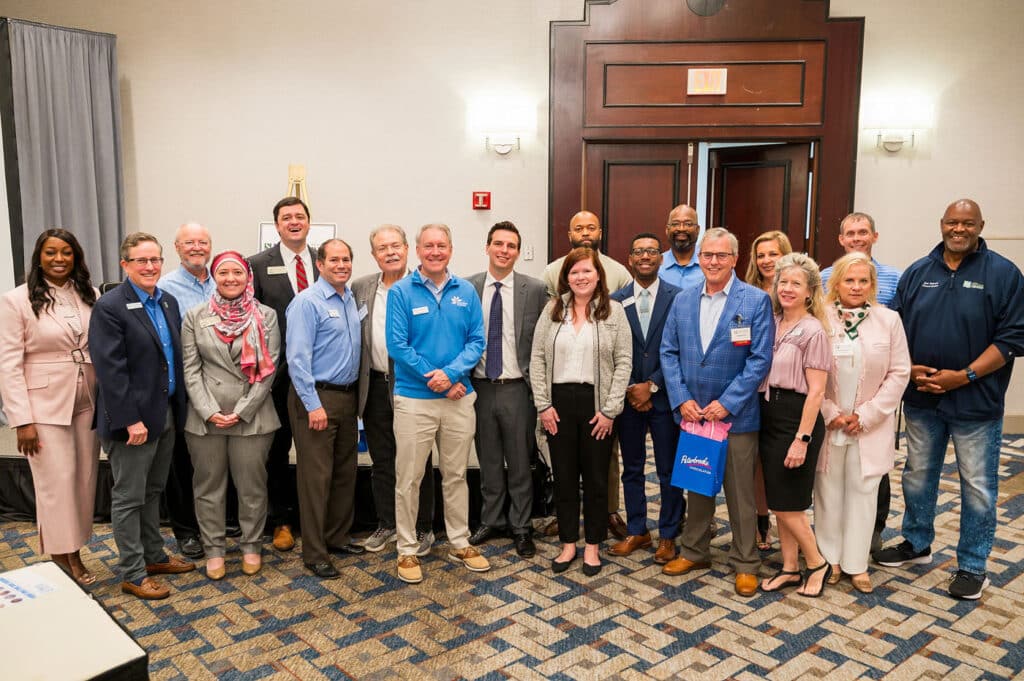
Senate Bill 63
The moderator, Norcross resident and former WAGA political reporter Dale Russell started off with a topic making headlines: Senate Bill 63. This law, signed by Gov. Kemp shortly after the session ended, prohibits charities, individuals or groups from providing bail funds for more than three people per year unless they register as bonding agencies. It also expands mandatory cash bail to 30 new offenses.
“I think it’s going to bring home safety to the community,” said Hilton. “I ran on that issue because as I was knocking on doors, I’ve heard from folks who [want to] keep our community safe. And unfortunately, no community has been immune from the uptick in crime that we had seen post-COVID, so this was one of those bills in response to that.”
Hilton gave examples of crimes where individuals out on bail committed acts such as murder.
“That was our commitment back to our constituents to say, ‘Listen, we’re not going to let bad guys back out onto the streets again to do more crime.’ This bill was in response to this; it’s going to keep our community safe, hold those accountable and bring justice to those who break the law,” Hilton remarked.
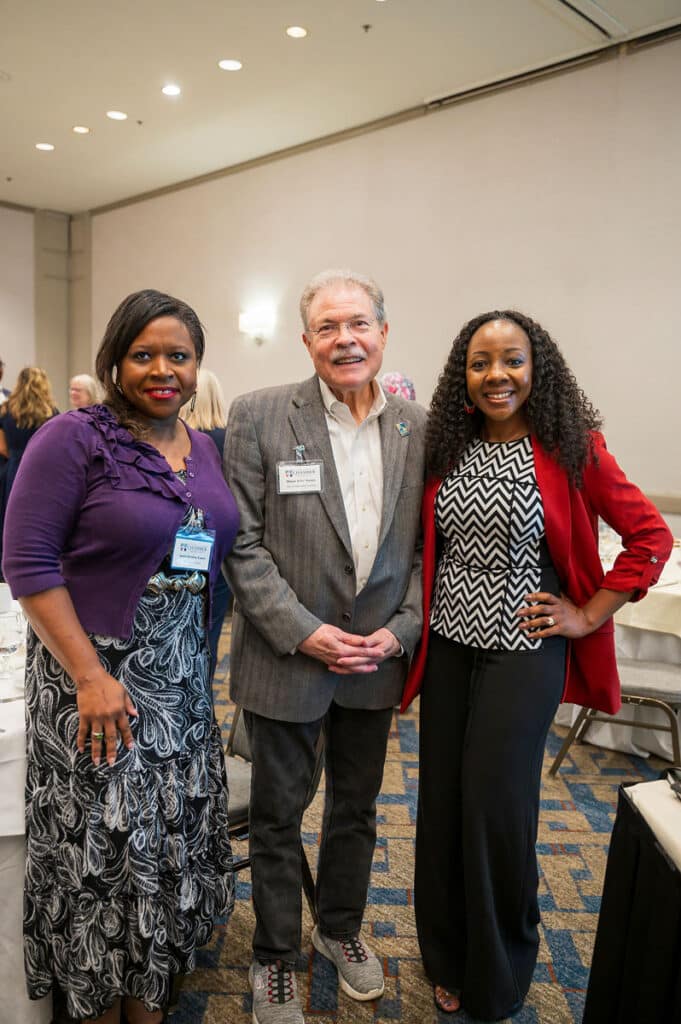
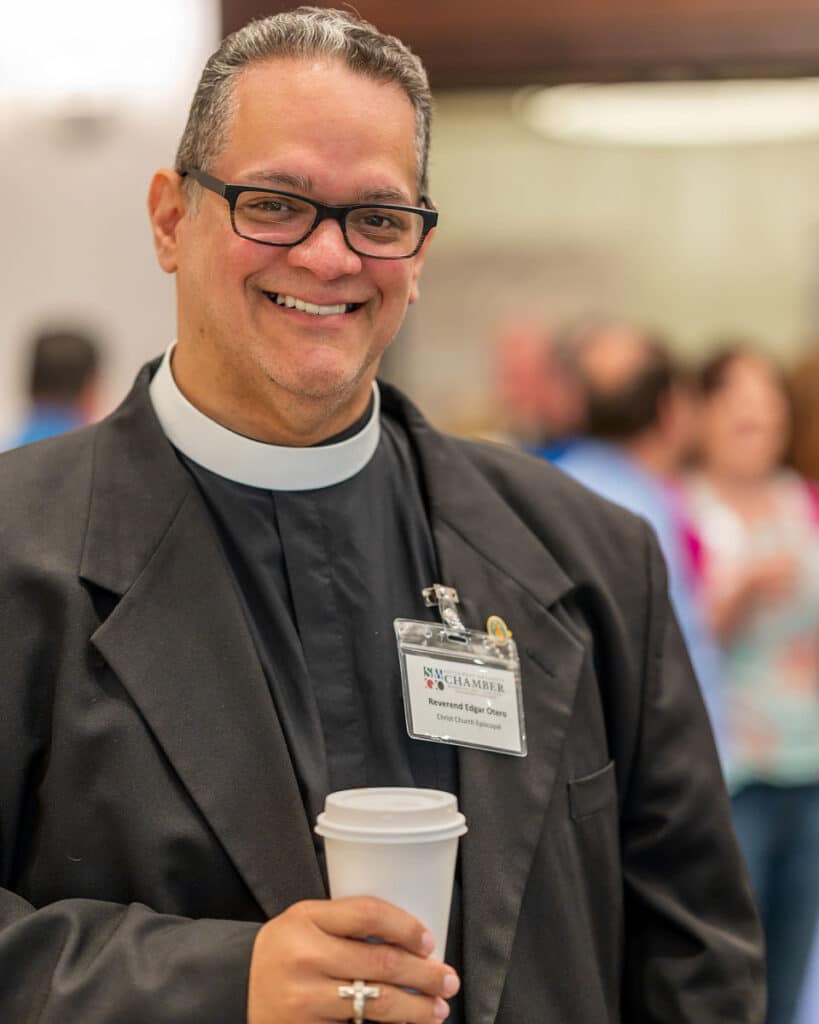
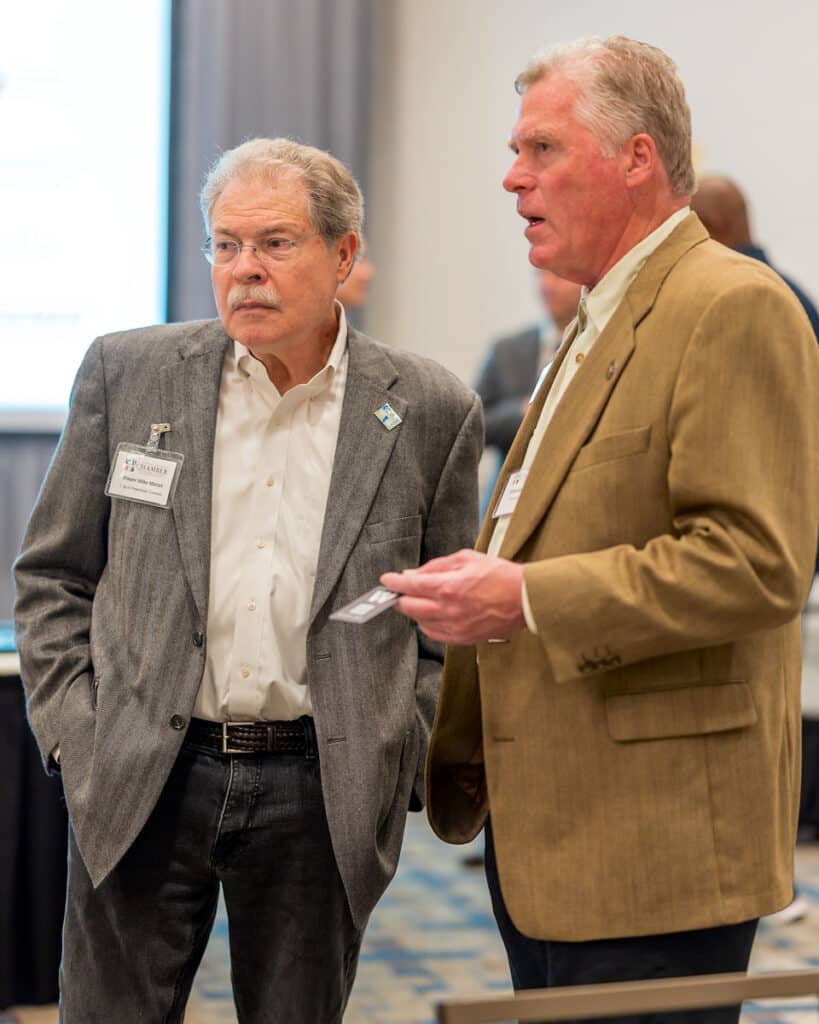
“Unfortunately, right now, we’ve got district attorneys and sheriffs across Georgia who are blatantly disregarding the law and letting folks back out on the streets who pose, you know, safety risks to law-abiding citizens like you and I and your businesses,” he continued.
Russel pointed out that there’s been a lot of criticism of this law.
“The ACLU was totally against it. Some felt like it was imprisoning poor people in the sense, for minor crimes,” he said.
“I do agree with the criticism for a few reasons,” said Romman.
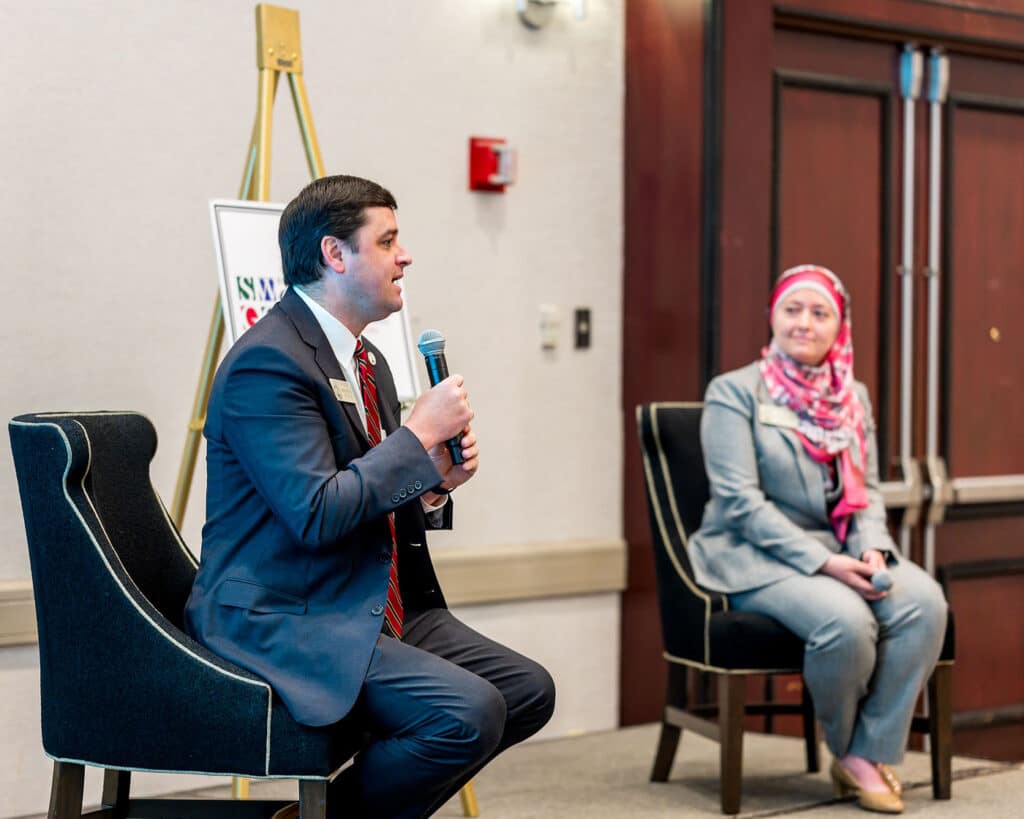
“The problem with this bill is that of the 30 crimes that are listed as now requiring a cash bail, the majority of them don’t actually require jail time, even if you’re found guilty of them. So now, somebody who would not even have ever served time for those crimes that are listed could now serve jail time because they cannot afford their bail,” she explained.
She added that the law doesn’t address the crimes it’s supposed to protect citizens from.
“We see these headlines, but this bill doesn’t address those because what we see happening is that a lot of churches now will no longer be able to bail people out that cannot afford their bail because of this bill,” she said.
“And churches that have been trying to, for example, reunite a parent with their children for Christmas, or whatever the case may be, can no longer do that. There is actually an exception written into this bill for bail bondsmen. So, it’s not like being able to pay cash bail is completely out of the question. It just means that somebody can make money off of it now,” Romman continued.
Hilton said the state isn’t done with addressing public safety issues as they come up.
“I know that’s been a priority of the governor, and I think rightfully so; you know, there’s a reason we’ve got citizens flocking to Georgia over the last ten years; we’ve added a million Georgians to our state, and they are leaving states with policies that don’t have this. They’re coming to Georgia for economic prosperity, for safety and for good schools,” said Hilton.
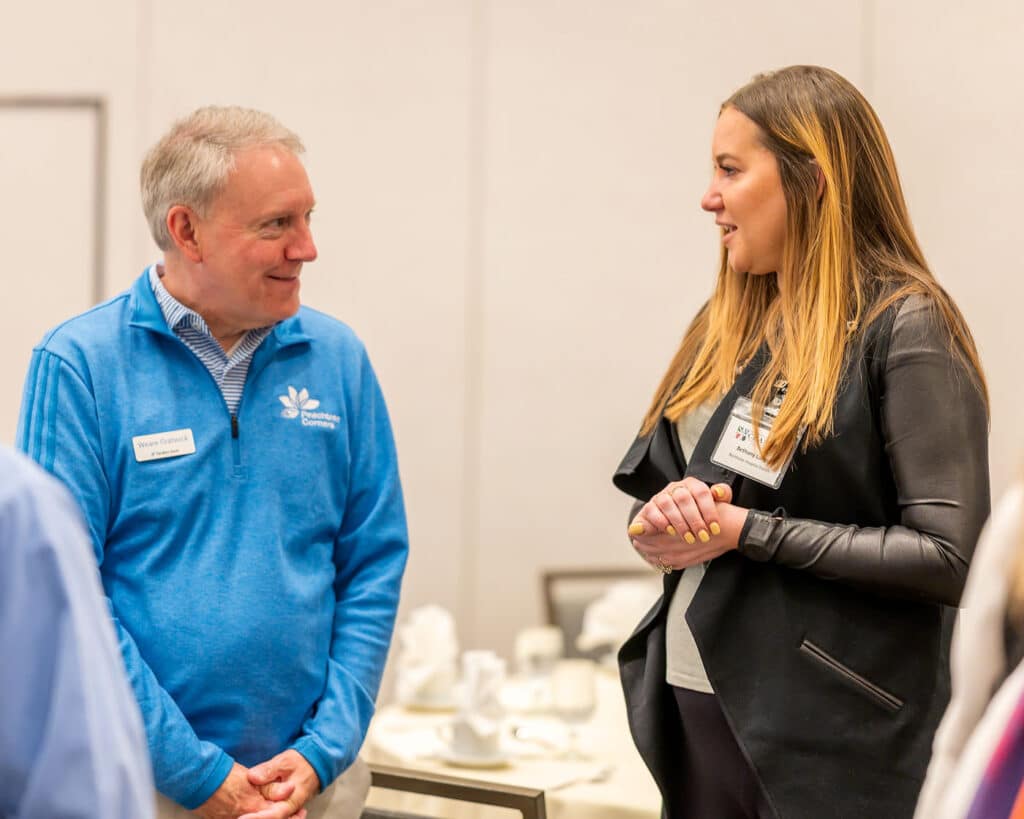
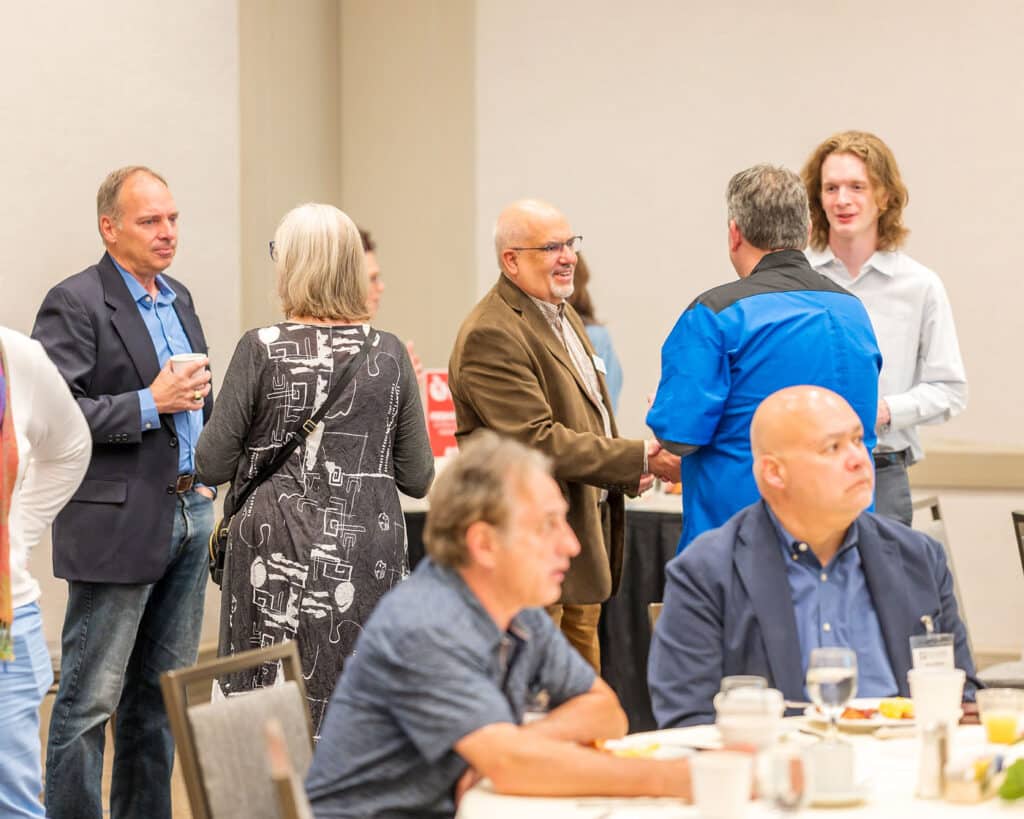
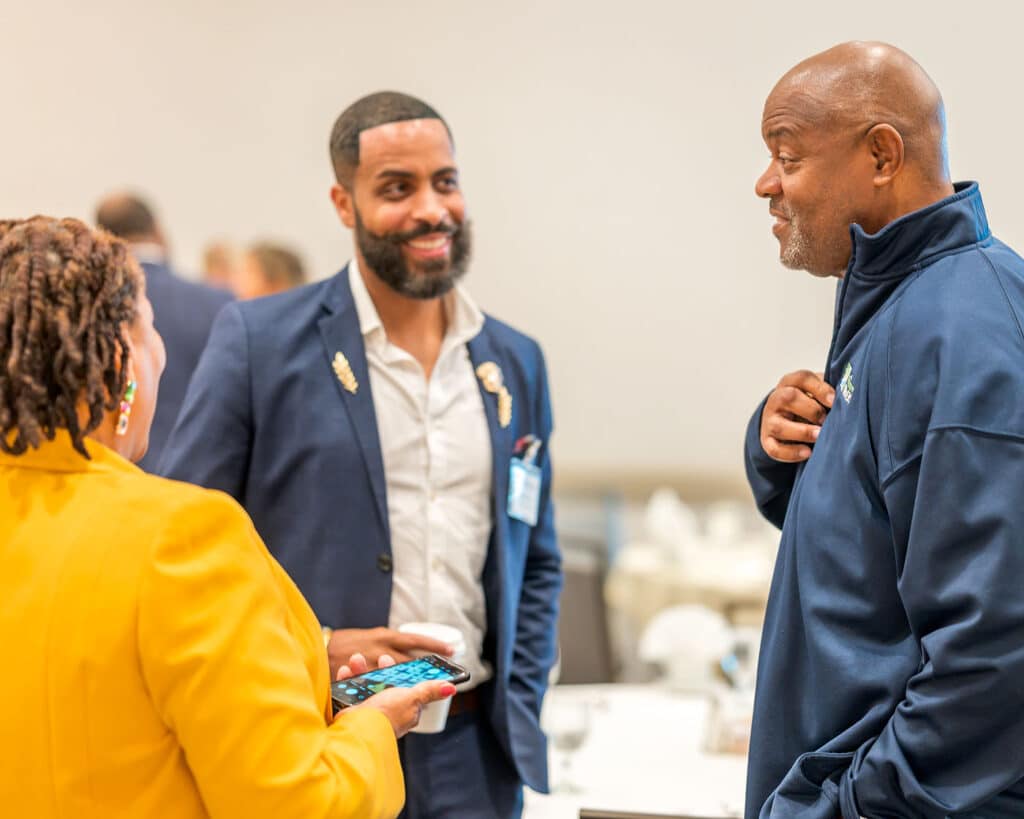
House Bill 1105
Another controversial bill, HB 1105, is framed as a public safety bill that requires local enforcement to coordinate with federal immigration officials when someone in custody is suspected of being in the country illegally.
Some say it’s an immigration bill.
“I know that the federal administration is trying to tell us there’s not a crisis. But there is a humanitarian crisis going on right now on our southern border. … But they’re not handling it the right way, and it’s starting to impact our communities,” said Hilton.
“We’ve got sheriffs who have folks in their custody, who [need] to be reported up to ICE. And essentially, they’re sort of ignoring what’s in the law right now that says you got to report these folks,” he explained.
Romman doesn’t see it that way.
“Again, when you read the contents of the bill, that is, unfortunately, not what it does,” she said. “I’m one of the few, if not the only, member of the legislature that’s done any border project work,” she remarked.
She talked about her work keeping unaccompanied immigrant minors safe.
“I want to remind people that when we talk about immigration, there’s an entire spectrum of people that we are talking about. And it’s not just at the border, it’s also people that fly into our country legally, that gets narrowed into a terrible immigration system,” Romman said.
“It forces our state and county and city police to do federal-level work without more funding. What we’re doing is we’re actually adding an increased burden, essentially onto their workload that we are not paying for. And in addition, within this bill, if they do not do this, they could lose more funding.”
She added that this will take the police away from focusing on local issues and trying to work with people who live in their communities.
“If a community member feels like if they reach out to police for help, and the police are going to deport them, they are less likely to report crimes and less likely to work with our local police department,” Romman said. “If we’re serious about immigration and its relationship to crime, immigrants are 30% less likely to commit crimes, and I don’t want to vilify an entire group of people.”
Romman said she supports a holistic, three-pronged approach that includes improving conditions on the border and pathways to citizenship.
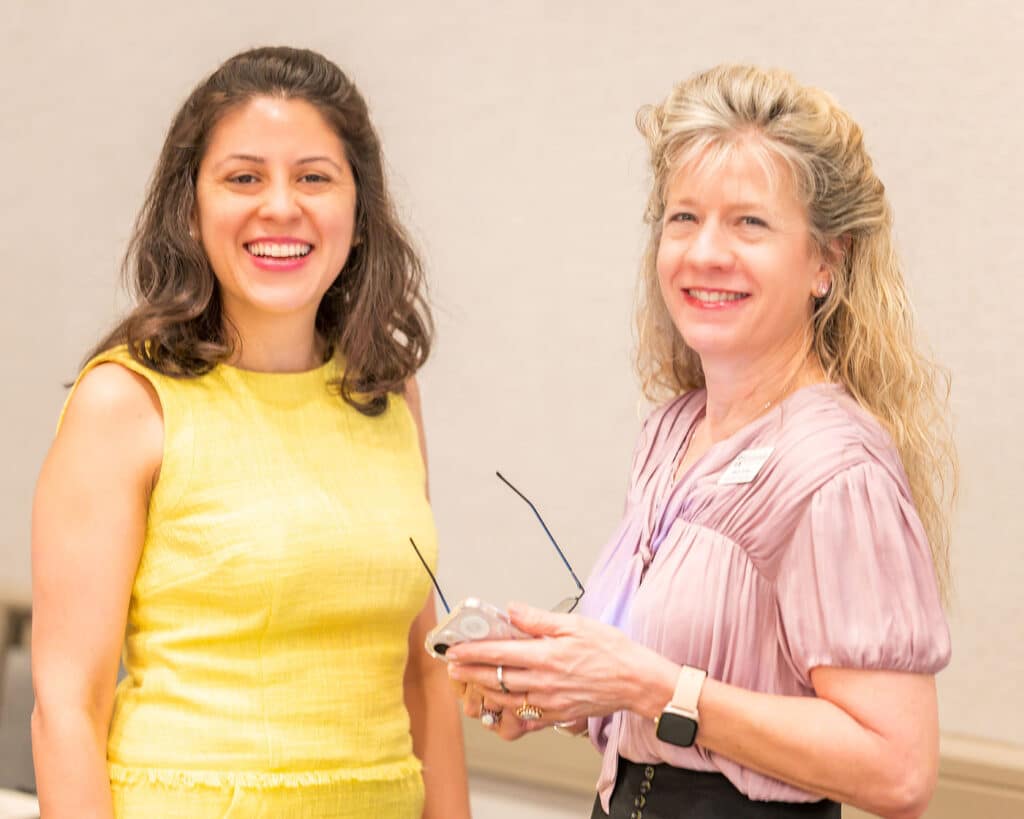
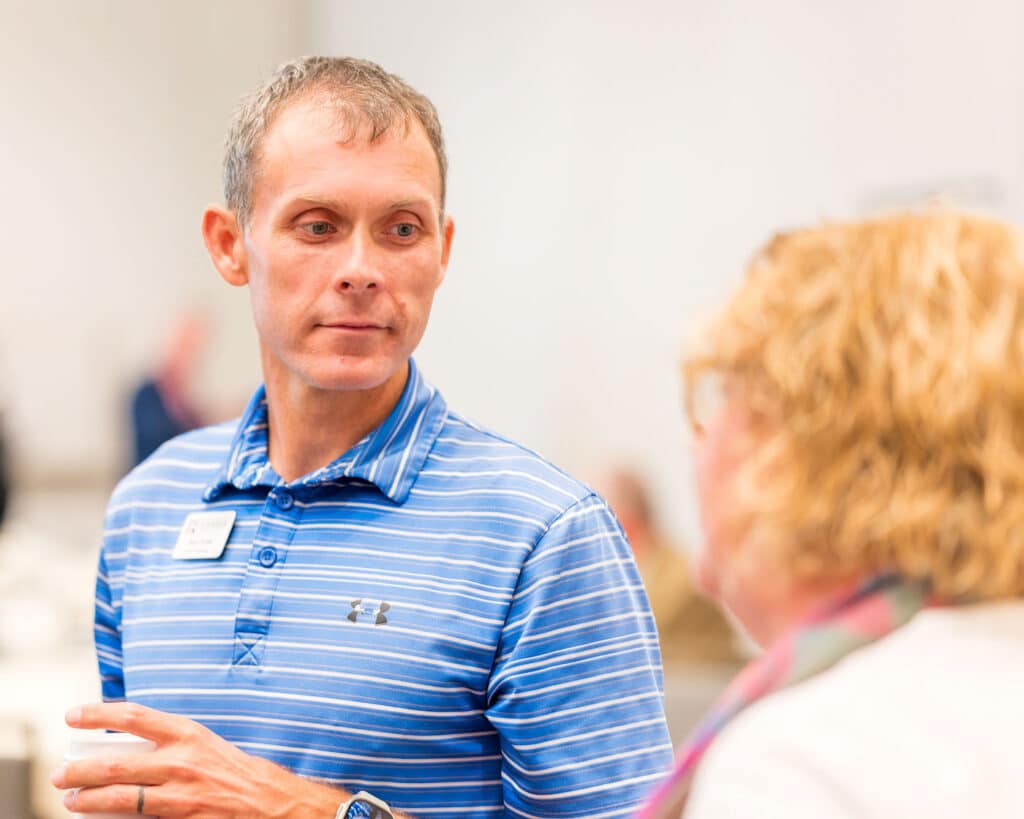
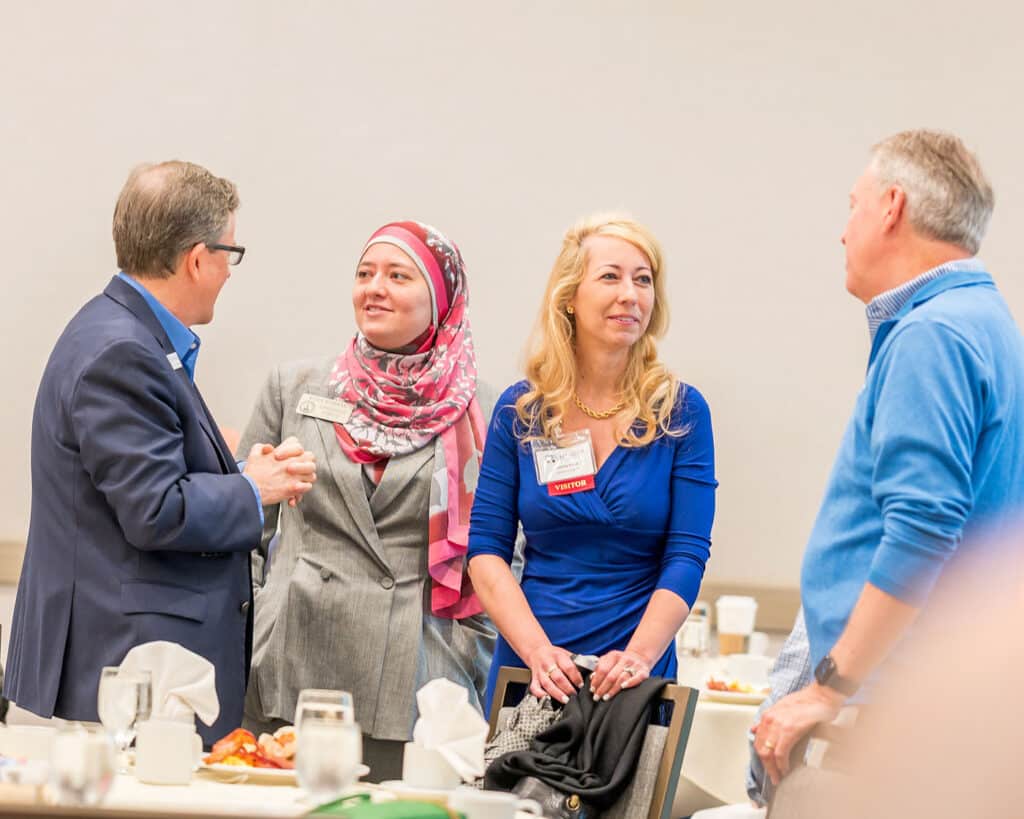
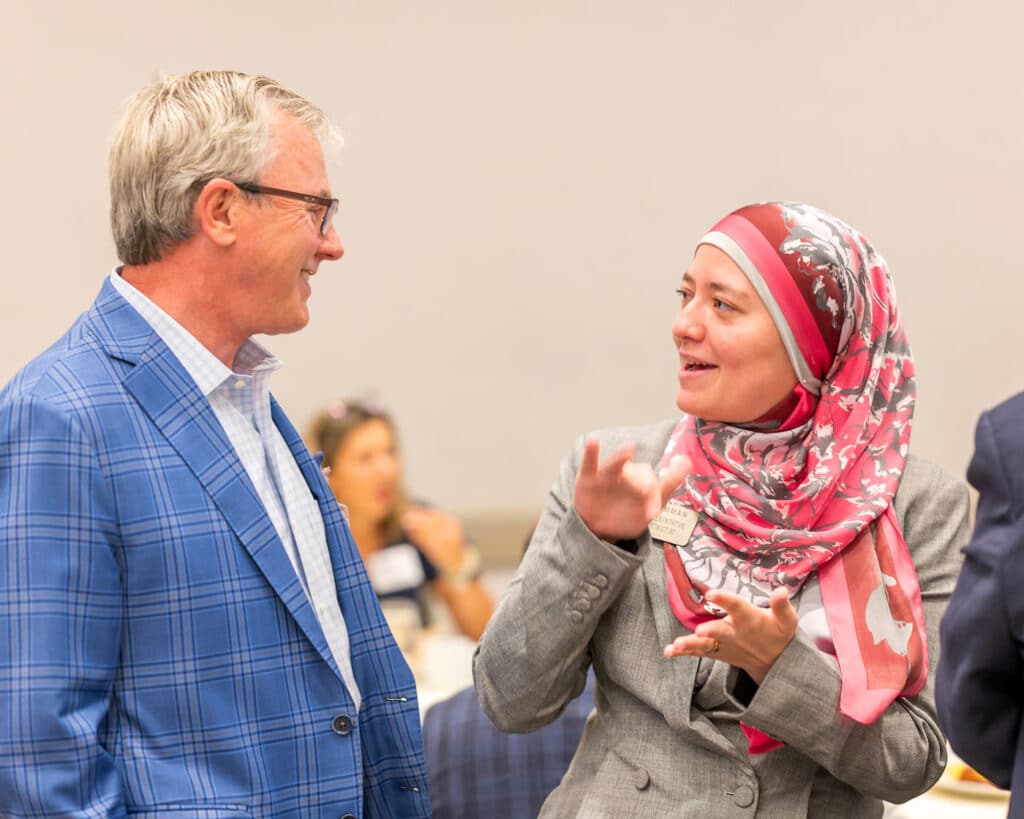
Business-related legislation
When the smoke cleared, both Hilton and Romman joked that they had different opinions about many issues but agreed that’s a healthy part of how the government works.
“The fact that we do disagree and the fact that you, the community, have varying choices and options out there. I think it’s a healthy part of the process,” said Hilton. “And we do have fun. I was telling somebody we play kickball about halfway through the session, and we do get along.”
The discussion moved on to topics such as the FTC ruling on non-compete clauses and tort reform, which just about everyone in the room agreed upon. Although employees could see the beauty of disallowing non-compete clauses, as business owners, they’d hate to see trade secrets put in jeopardy or valuable time and money put into training to benefit another company.
And everyone wanted to see caps on personal injury claims for things like slip-and-falls and fleet vehicle accidents.
“One of the few regrets I have coming out of session is that we didn’t do more on tort reform,” said Hilton. “Right now, Georgia is the number one judicial hellhole in the nation, meaning that we have more lawsuits on businesses and payouts than anywhere else in the country.”
This was one area where both representatives had similar views.
“I don’t think this is a left or right issue,” said Romman. “I want to make sure that whatever tort reform we pursue does not let, for example, a bad-acting company off the hook. But on the flip side, if somebody is just going around and suing everybody all the time to try and make some money off of it, how do you protect corporations and businesses from those kinds of bad incidents litigation?”
“What I will continue to look for when it comes to tort reform is, how are we going about balancing that?” she added.
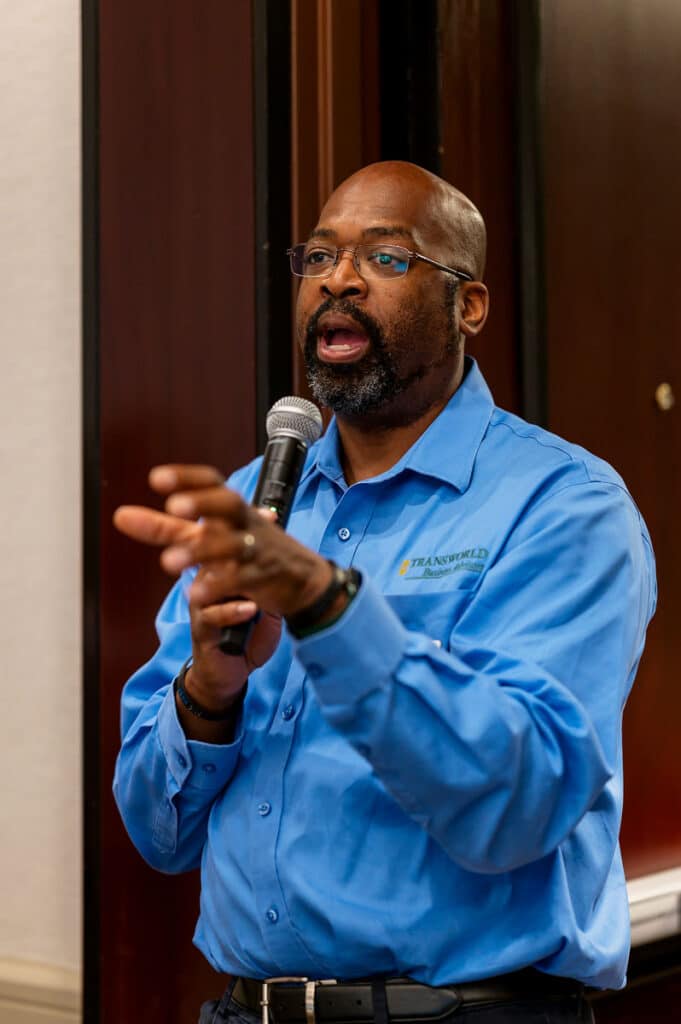
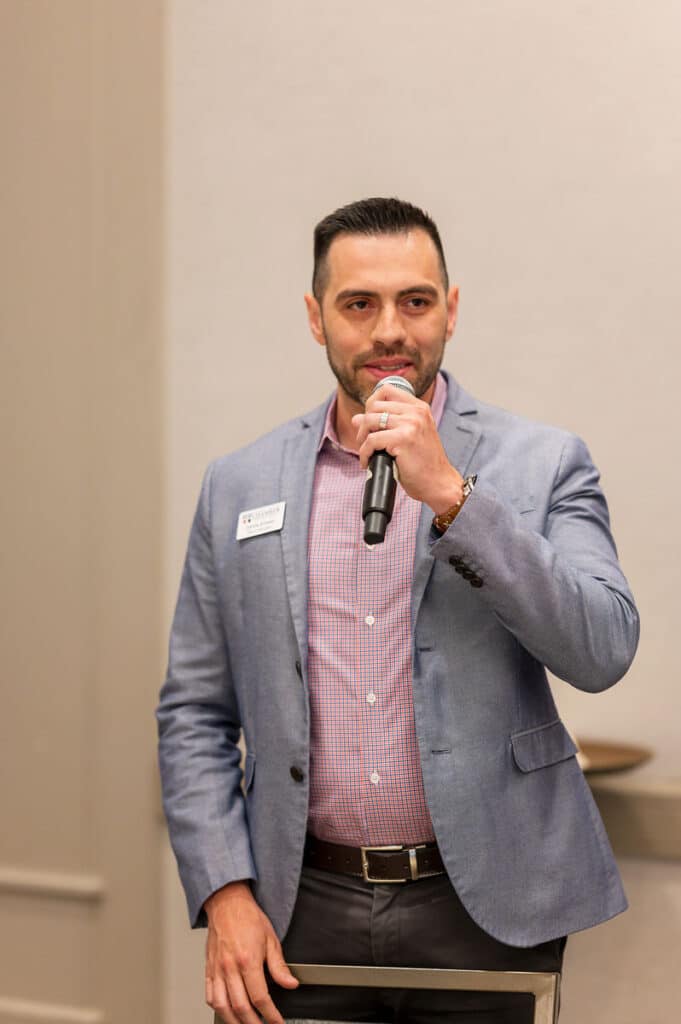
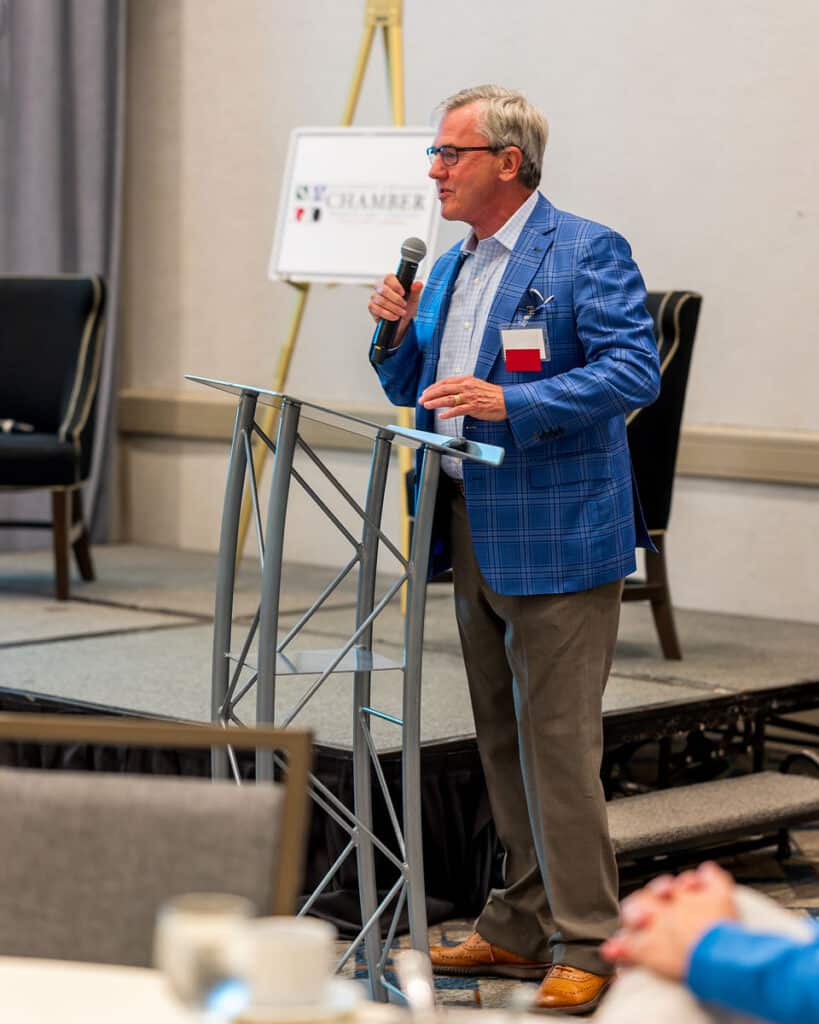
Looking ahead
As the session wrapped, Romman and Hilton pointed out legislation they’d like to see move forward next year.
“House Bill 971 creates a $300 tax credit for taxpayers who sign up for firearm safety training or purchase a safe storage device. It’s a bipartisan measure, viewed by some as a small but perhaps significant move for gun safety advocates, which was tabled in the Senate room,” said Romman.
She said the bill wouldn’t even require someone to disclose that they owned a firearm, but it was meant to incentivize people to store their firearms properly.
“There wasn’t a lot of appetite if somebody didn’t properly store their gun to have consequences for that, so we thought it would just incentivize better behavior,” she said.
Hilton mentioned school safety.
“Over the last three years, every single school in Georgia has gotten a one-time $100,000 grant for School Safety. That’s every school in Georgia; in this most recent budget, we included $45,000 in recurring money for every school in the state to do whatever they want to ensure their campuses are safe,” he said. This includes private schools as well.
At the end of the event, Hilton and Romman reminded the audience that they weren’t running against each other, and even though their views were different, their goals for a better Georgia were equally as passionate.
Related
Read the Digital Edition
Subscribe
Keep Up With Peachtree Corners News
Join our mailing list to receive the latest news and updates from our team.
You have Successfully Subscribed!

What’s going on at Jones Bridge Park and the Challenges of Urban Development

Taste of Peachtree Corners: PCBA Showcases Local Restaurants

The Forum Gives Sneak Peek of New Eateries and Community Spaces

Southwest Gwinnett Mayors Share Visions for the Future

8 Events Happening In and Around Peachtree Corners This August

Peachtree Corners Shines Bright with Light Up the Corners Glow Race this August

Peachtree Corners Shines Bright with Light Up the Corners Glow Race this August

The Forum Gives Sneak Peek of New Eateries and Community Spaces

8 Events Happening In and Around Peachtree Corners This August

Southwest Gwinnett Mayors Share Visions for the Future

Taste of Peachtree Corners: PCBA Showcases Local Restaurants

What’s going on at Jones Bridge Park and the Challenges of Urban Development

Local Resident Opens AtWork Location in Peachtree Corners

CHRIS 180 Expands its Services into Gwinnett County [Podcast]

Light up the Corners [Video]

Capitalist Sage: Business Leadership in Your Community [Podcast]

Cliff Bramble: A Culinary Adventure through Italy

Top 10 Brunch Places in Gwinnett County

A Hunger for Hospitality

THE CORNERS EPISODE 3 – BLAXICAN PART 1

Top 10 Indoor Things To Do This Winter

The ED Hour: What it takes to Remove Barriers from Education
Peachtree Corners Life
Topics and Categories
Trending
-
Business1 week ago
Taste of Peachtree Corners: PCBA Showcases Local Restaurants
-
Business2 days ago
The Forum Gives Sneak Peek of New Eateries and Community Spaces
-
City Government4 days ago
Southwest Gwinnett Mayors Share Visions for the Future
-
Around Atlanta4 days ago
8 Events Happening In and Around Peachtree Corners This August







